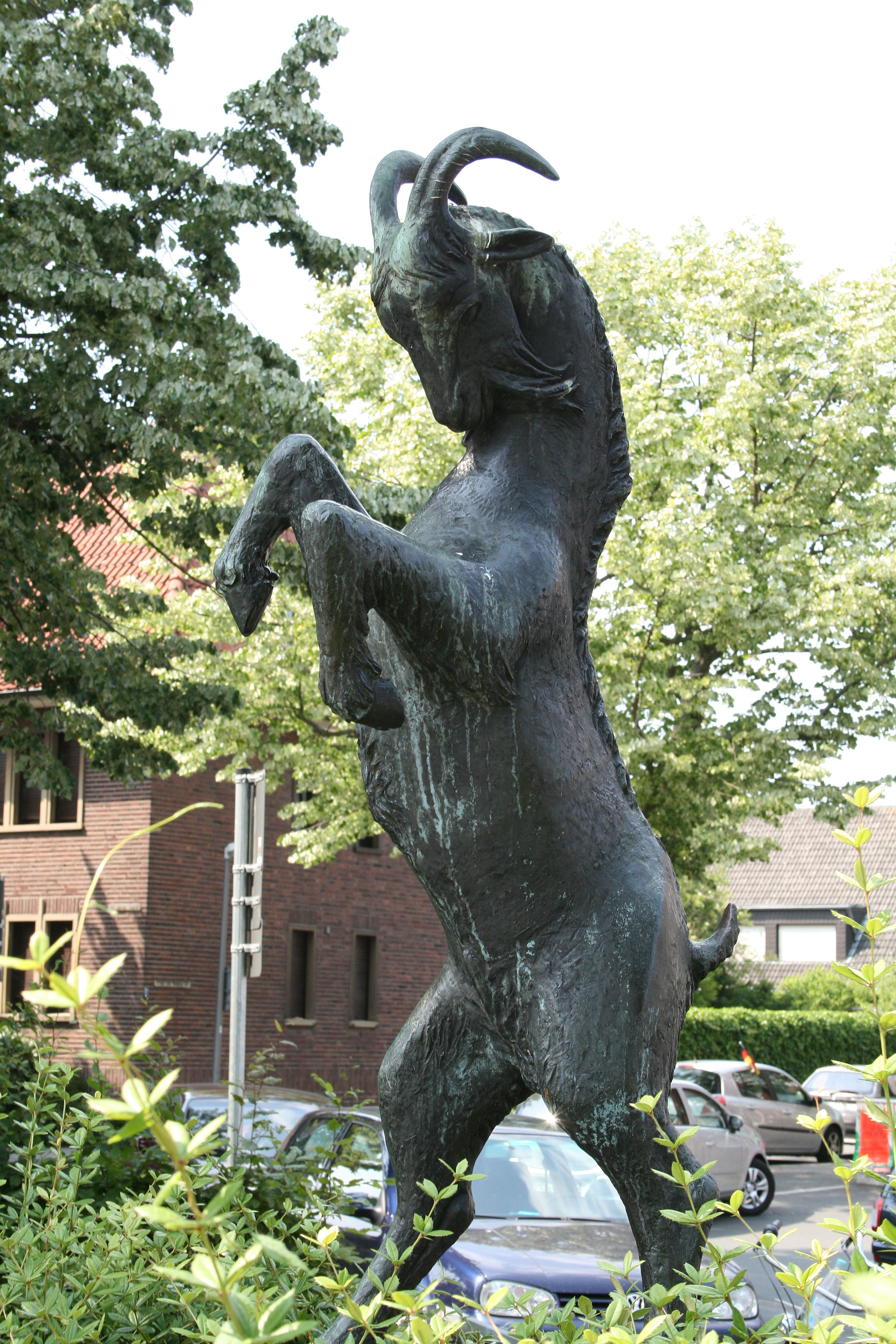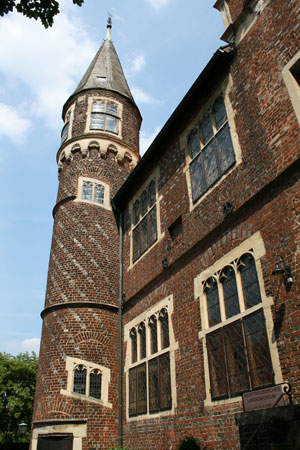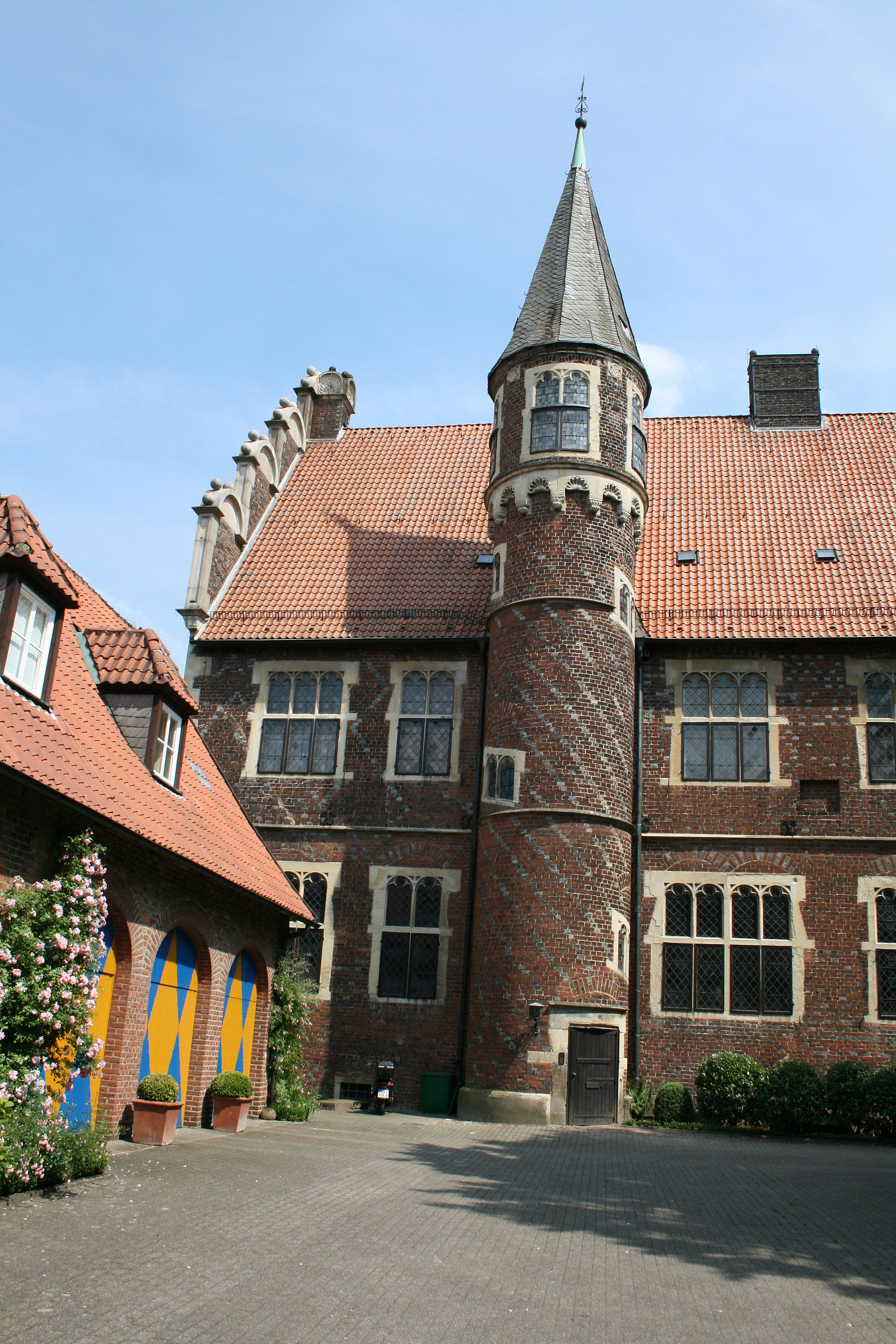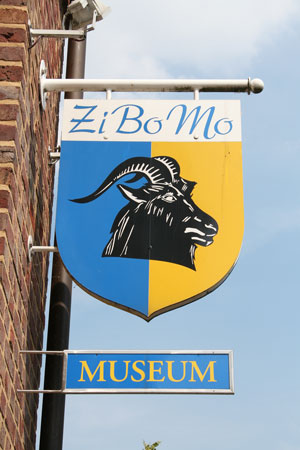Wolbeck

Wolbeck or Walbeke was first mentioned in the year 1185. The name (also mentioned as Woltbecke) means literally settlement at the forest stream. Due to the prince-bishop Everhard von Diest, Wolbeck received the Wigbold rights for the first time. That meant for the village:
- limited financial autonomy
- market rights
- fortification rights
- own jurisdiction
In the Middle Ages Wolbeck was the site of numerous witch trials, even today one speaks of 'Hexenwolbeck' (Witcheswolbeck). From the 13th-century on, Wolbeck was the seat of the prince-bishop, who had his residence in the castle. This was severely damaged by French troops in the Seven Years' War. Later, many bricks from the former castle were used for the construction of Münster palace. Today, only a covered well on farmer Tripp's premises ('Tripps Hügel') is all that is left of the prince-bishop state castle. In the 1960ties, Wolbeck was a Kneipp health resort. for a short time.

The original Wolbeck coat-of-arms from the 13th-century, depicts three birds on a tree above a barrow. Since 1952, the official coat-of-arms has only two birds and the barrow was displaced by a river. The Drostenhof in Wolbeck is a monument of prince-bishop times. It was built in the year 1535 by the episcopal bailiff Dirk von Merveldt, who was significantly involved in the expulsion of the baptist from Münster. The Drostenhof is owned by the family, Earl von Merveldt, which over generations held the office of a Lord High Justicar for Wolbeck and had a very tight connection with Wolbeck since 1389 already. The Drostenhof still forms the village today. One part of the Drostenhof is as West Prussian State Museum open to the public.

The sports club TV Wolbeck offers volleyball, judo, athletics, basketball and fitness training. In addition, there is the TC 66 Wolbeck,a tennis club as well as the soccer club VfL Wolbeck. The billy goat Monday (ZiBoMo) takes place in Wolbeck once a year. It is carnival event, which takes place on the Monday before the Carnival Mondayand attracts guests from the surrounding area.

For children and teenagers there are regular leisure time activities in Wolbeck, organised by church communities and the scouts of the DPSG (Deutsche Pfadfinderschaft Sankt Georg). The youth centre Bahnhof Wolbeck offers in the former railway station, then used by the Westphalian state railway further leisure time activities. The 'Tiergarten', situated on the outskirts of the village and a large wooded is being used as a local recreation area. The economy in Wolbeck is largely characterised formed by trade, agriculture and manual skills. the landscaping centre of theLandwirtschaftskammer Nordrhein-Westfalen offers further education for gardeners and landscapers and houses the horticultural consultancy, a vocational training centre with more than 2.000 course participants per year as well as a research centre and a hotel.

